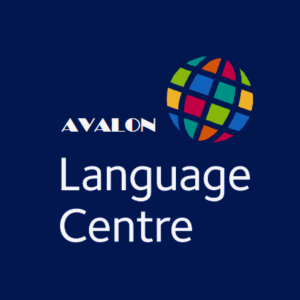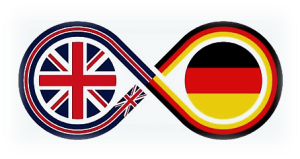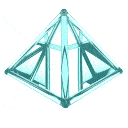Like to wave goodbye to worries about your Writing / Translation / Editing project?
Now you can!
Our professional help is only a mouse-click away, wherever you are, whatever your time.
If you want the best in quality of performance and service, you’ve come to the right place. You can sit back, while our language professionals take good care of your project and get the job done better and faster than you can imagine. 
Writing. Translation. Editing. Proofreading.
Guaranteed top quality, service and value.
Language and AVALON: a very intense and special affair
Language – by definition the systematic method of human communication, either spoken or written, using words in a structured and conventional way (Oxford Dictionaries). Each human language is a complex of knowledge and abilities enabling speakers of the language to communicate with each other, and it involves numerous cognitive processes to produce and understand language.
As humans, we assume that we have certain inherent objectives, and we use language as a kind of abstract tool with which to fulfil these objectives. Our behaviour and language coalesce in such a way that the patterns of our language are what dictate the nature of our experience. The very way in that we interact with, and react to, the world and each other on an immediate and intuitive level is completely dependent upon the meaning, usage, structure, and grammar of the language in which we think and communicate. In other words, meaning virtually is an activity, and our language in point of fact is our world. This is why there can never be such a thing as ‘objective’ meaning because meaning cannot be abstracted from a given context.
Languages differ from each other by their sounds, grammar, vocabulary, and patterns of discourse. All languages are highly elaborate entities. They vary in the number of their vowel and consonant sounds, from less than a dozen to over a hundred. European languages tend to have inventories in the middle range, from around 25 such sounds (e.g. Spanish) to over 60 (e.g. Irish). Alphabets reflect these sounds with varying degrees of accuracy: some alphabets (e.g. Welsh) are very regular in the way they symbolise sounds; others (e.g. English) are very irregular. Within grammar, each language comprises several thousand points of word formation and sentence construction. Each language has a huge vocabulary available to meet the needs of its users. In the case of European languages, where scientific and technical vocabulary is very large, this reaches several hundred thousand words and phrases. Individual speakers know and use only a fraction of a language’s total vocabulary. The words educated people use – their active vocabulary – can reach some 50,000 words, while the words they know but do not use – their passive vocabulary – is somewhat larger. In everyday conversation, people often make use of a small number of words only, however with great frequency.
The language industry is the sector of activity dedicated to facilitating multilingual communication, in both oral and written format. Globalisation and the rise of the Internet have fostered a worldwide market for outsourced professional language services.
We are here to competently assist you in Writing and Translating what you wish to say, getting your message across effectively. The Editing and Proofreading process enhances and assures highest accuracy and quality of the texts, so you can then with full confidence get these out far and wide to pursue your intention and success.
“The greatest obstacle to international understanding is the barrier of language.” (Christopher Dawson)
With our native language support in German and English (please see the following paragraph ‘Our languages‘), you can break this barrier as we have you covered for two of the ultimately most important languages used in the world, whatever your context and purpose. We put the power of language and effective polyglot communication in your hands.
Language is a central feature of being a human. Our planet has over 7 billion people who speak between 6,000 to 7,000 different languages. A few languages are spoken by hundreds of millions of speakers, such as English and Chinese. Language and culture, i.e. the values and norms that define a society, are closely intertwined and important to the perceptual process, wherein it is determined if some “truth” is of relevance, as well as the ability to communicate it across differing views.
A picture may be worth a thousand words, as they say, however mostly words are needed which do speak more than pictures, definitely. In this, you can confidently rely on us because all project works are done employing in-house expertise of our own team of linguist creatives. We believe that each writer and translator not only needs to possess sound knowledge of the respective languages yet also broad general knowledge and understanding of the subject matter. Hence all team members are native speakers of their respective languages and bring solid education and relevant experience to their work.
“We think in language. The quality of our thoughts and ideas can only be as good as our language.” (George Carlin)
Let AVALON find the right words for you!

Our main languages
Preface: The birthplace of our languages
The world’s major languages and dialects including Germanic, Romance, and Slavic languages are thought to have originated on the Eurasian grasslands, namely the steppes of Ukraine and Russia, 5,000–6,000 years ago, when the domestication of horses and the invention of wheeled transport would have allowed herders there to rapidly expand their range. All the languages that AVALON serve today belong to this major Indo-European language family. Languages are the soul of Europe.
Country-specific differences
All of our languages are spoken differently in multiple countries. Just think of the differences in the use of certain words, spelling, the use of tense and grammar, for example, between UK English, US English, and Australian English, or between Hochdeutsch and German in Switzerland or Austria. Through globalisation and localisation techniques our expert linguists take into account cultural differences and regional expectations to ensure your texts will be accurate and appropriate for effective use in and across the targeted country.
Quick info by language:
![]() English Language Facts
English Language Facts
The English language has a rich and complex history that spans over a millennium, evolving from its Germanic roots to become a global ‘lingua franca’ (a term which means ‘bridge language’, being used to enable communication between people who do not share a native language or dialect) with unparalleled influence in various spheres of life.
Exploring its origination, linguistic specifics, usage patterns, and business relevance provides insight into its remarkable journey.
Origins and development
Old English: The earliest form of English, known as Old English, emerged around the 5th century AD with the arrival of Germanic tribes, primarily the Angles, Saxons, and Jutes, to the British Isles. Old English was heavily influenced by Germanic languages, featuring grammatical structures, vocabulary, and sounds akin to Old Norse and Old High German.
Middle English: Following the Norman Conquest of England in 1066, French became the language of the court and administration, resulting in significant lexical borrowing and the evolution of Middle English. During this period, English absorbed a vast number of French words, transforming its vocabulary and grammar.
Early Modern English: The invention of the printing press in the 15th century facilitated the standardisation and dissemination of English texts, leading to the emergence of Early Modern English. This period saw the works of influential writers such as William Shakespeare and the translation of the Bible into English, contributing to the language’s development and prestige.
Modern English: Its period began around the 16th century and continues to the present day. It is characterised by further expansion of vocabulary through global exploration, scientific innovation, and technological advancement. English underwent significant changes in pronunciation, grammar, and vocabulary, reflecting its dynamic and adaptive nature.
Linguistic specifics
Grammar: English grammar features a relatively simple inflectional system compared to other languages, with limited noun and verb inflections. Instead, it relies heavily on word order and auxiliary verbs to convey meaning and grammatical relationships.
Vocabulary: English boasts the richest and widest-ranging vocabulary out of all languages, drawing from diverse sources such as Latin, Greek, French, German, and more recently, languages spoken in regions of British colonial influence. The Oxford English Dictionary numbers more than 500,000 words, and it keeps growing as about 4,000 words are officially added to dictionaries each year. This lexical richness contributes to its versatility and adaptability across different domains.
Pronunciation: English pronunciation exhibits considerable variation, influenced by regional accents, historical factors, and contact with other languages. Despite this variability, standardisation efforts, such as the establishment of Received Pronunciation (RP) in Britain and General American (GA) in the United States, provide reference points for pronunciation norms.
Usage patterns
Global lingua franca: English has become the dominant international language of communication, serving as a bridge language in diplomacy and politics, business communication, science, technology, and entertainment. Its widespread usage facilitates cross-cultural communication, trade, and collaboration on a global scale.
English is official language in 67 countries and 27 non-sovereign countries such as Hong Kong, of the United Nations, the European Union, and many other world and regional international organisations.
Digital dominance: The rise of the Internet and digital technologies has further solidified the role of English as the language of the digital age. The world of the Internet is primarily built and conducted in English, with 80% of the world’s information in computers being stored in the English language, and it is the most widely used language online, reinforcing its prominence in the digital sphere.
Educational significance: English is a key component of education systems worldwide, with millions of students learning English as a second or foreign language, making it the most widely learned second language in the world. Proficiency in English is often viewed as essential for academic success, career advancement, and participation in the global economy.
Business relevance
International trade and commerce: English is the language of international business, facilitating communication, negotiations, and transactions between companies from different linguistic backgrounds. English proficiency is often a prerequisite for global business ventures, giving companies a competitive edge in the international marketplace.
Multinational corporations: Many multinational corporations adopt English as their primary language for internal communication, documentation, and corporate culture. English proficiency is crucial for employees working in multinational environments, enabling seamless collaboration and knowledge sharing across borders. Since 2001, English also has been the official language of all international air travel, regardless of the nationality of pilots.
Academic and scientific relevance: English is the dominant language of science, with half of the scientific publications and journals coming out in English.
Market access: English-language content has unparalleled reach and accessibility in global markets, allowing businesses to reach diverse audiences and expand their customer base. Translation and localisation of marketing materials, product documentation, and customer support services into English are essential for penetrating international markets effectively.
In conclusion, the English language has evolved from its humble origins to become a global powerhouse with immense linguistic, cultural, and economic significance.
About 360 million people speak English as their mother tongue today which makes it the third-most common native language in the world, after Mandarin Chinese and Spanish. As much as 600 million people already speak English as their second language. Almost 1 in 5 people on earth speak English either as a first or a second language.
Its history and growth, as well as its adaptability and simplicity with little secrets, all make up a magnificent structure that explains the immense worldwide prevalence of English and its legacy throughout the world.
Modern English is regarded as the first ‘world language’.
Linguistic variants of the English language
English encompasses a range of linguistic variants, including Irish English, Scottish English and American English, and several others, each with unique characteristics shaped by historical, cultural, and geographical influences, resulting in diverse vocabulary, and grammatical features, as well as some specific accents.
Here is an overview of these variants, where they are used, and how we cover them:
- British English
- Spoken primarily in the United Kingdom, including England, Scotland, Wales, and Northern Ireland
- Variants include Received Pronunciation (RP), associated with prestige and often heard in formal contexts, as well as regional accents such as Cockney, Geordie, Scouse, and West Country accents
- Irish English
- Spoken in the Republic of Ireland and also in the province of Northern Ireland
- Irish English is due to historical interactions close to British English and features distinctive pronunciation, vocabulary, and grammatical structures influenced by Gaelic, the traditional Irish language
- Variants include Hiberno-English, which encompasses regional accents such as Dublin English, Cork English, and Ulster English
- Scottish English
- Spoken in Scotland, alongside Scottish Gaelic and Scots (a distinct Germanic language)
- Scottish English exhibits unique pronunciation, vocabulary, and grammar influenced by Scottish Gaelic, Scots, and historical interactions with English
- Variants include Standard Scottish English, spoken in formal contexts, as well as regional accents such as Glaswegian (Glasgow) and Doric (Aberdeen)
- American English
- Spoken throughout the United States, with regional variations influenced by historical settlement patterns, migration, and cultural diversity
- Variants include General American (GA), often considered the standard American accent, as well as regional accents such as Southern American English, New York City English, and African American Vernacular English (AAVE)
- Canadian English
- Spoken in Canada, with regional variations influenced by British, French, and Indigenous languages
- Variants include Standard Canadian English, which shares close similarities with both British and American English, as well as regional accents such as Newfoundland English, Maritime English, and Quebec English
- Australian English
- Spoken in Australia, with regional variations reflecting settlement patterns and cultural diversity
- Variants include General Australian English, associated with urban areas and standard media pronunciation, as well as regional accents such as Broad Australian, Cultivated Australian, and Aboriginal English spoken by Indigenous Australians
- New Zealand English
- Spoken in New Zealand, with influences from British English, Māori, and Pacific Island languages
- Variants include New Zealand Standard English, with regional accents such as Southland English, West Coast English, and Māori English spoken by the Māori population
These linguistic variants of English reflect the diverse cultural, historical, and linguistic influences shaping the English-speaking world, contributing to the richness and diversity of the English language.
At AVALON we cover all relevant services in British, Irish, Scottish and US English with expert in-house linguists, while we have competent native partners for English variants in Canada, Australia and New Zealand.
![]() German Language Facts
German Language Facts
German, as already stated in the preface above, has a rich and fascinating history that stretches back over a millennium, evolving from its early Germanic roots into a modern language with significant cultural, linguistic, and economic influence.
Origins and development
Old High German: The earliest form of German, known as Old High German, emerged in the 6th century AD and was spoken in regions of modern-day Germany, Austria, and Switzerland. Old High German was influenced by various Germanic dialects and underwent significant sound shifts and changes in grammar and vocabulary.
Middle High German: During the middle ages, Middle High German became the predominant literary and administrative language in the holy roman empire. This period saw the standardisation of German through the translation of religious texts, legal documents, and epic poetry into the vernacular.
Early Modern German: The invention of the printing press in the 15th century facilitated the spread of written German and contributed to the standardisation of the language. The Gutenberg Bible was in 1454 the first book printed by way of movable type, which spawned the age of industrial printing. Influential writers such as Martin Luther, with his translation of the Bible into German, played a crucial role in shaping modern German grammar and vocabulary.
Modern German: It emerged in the 18th and 19th centuries, marked by further standardisation efforts and the establishment of a unified German nation in 1871. The standardisation of German spelling and grammar was formalised through the publication of dictionaries and grammatical guidelines, laying the foundation for contemporary German.
Linguistic specifics
Grammar: German grammar is characterised by its system of case markings, noun declensions, and verb conjugations. Unlike English, German features grammatical gender (masculine, feminine, neuter) and a more complex system of word endings to indicate grammatical functions.
Vocabulary: German vocabulary is renowned for its compound words, wherein multiple words are combined to create new terms. This feature allows for the creation of highly specific and descriptive expressions, making German particularly suited for technical, scientific, and philosophical discourse.
Pronunciation: German pronunciation is generally phonetic, with consistent rules governing the sounds of letters and syllables. The German language features unique phonetic elements, such as the “ch” sound (as in “Bach”) and umlaut vowels (ä, ö, ü), which distinguish it from other languages.
The German language is very descriptive, considered difficult to study with its long and winding words, and while the grammar is quite logical, there are many exceptions to the rules.
Usage patterns
Language status: German is official or co-official language in Germany, Austria, Switzerland, Luxemburg, and Liechtenstein, as well as in parts of Italy and Belgium. Today German is spoken by over 100 million people worldwide as a first language, making it the 11th-most-spoken language globally. In Europe, German is the Number 1 most common mother tongue, spoken by 16% of the European population. The German language is in great demand abroad too as it is the third-most commonly taught language worldwide, after English and French; it is believed that about 16 to 18 million people are learning German. It is a key language within the European Union, being the world’s largest economy and most successful trading block.
Cultural and literary significance: German has a long-standing history as a noteworthy language of culture, philosophy and theology in Europe and overseas, often being referred to as the “language of writers and thinkers”. German literature, philosophy, and music have made significant contributions to world culture, with renowned figures such as Johann Wolfgang von Goethe, Friedrich Nietzsche, and Ludwig van Beethoven shaping artistic and intellectual discourse in German-speaking regions and beyond.
Business relevance
Economic powerhouse: With Europe’s largest population, largest national economy and the third-largest global economy, the status of German as a major business language needs little further explanation or justification. Germany is a global leader in manufacturing, engineering, technology, and finance. Proficiency in German is highly valued in industries such as automotive manufacturing, machinery, pharmaceuticals, and finance, where precision and technical expertise are paramount.
Market access: German proficiency provides access to the lucrative German-speaking markets, comprising Germany, Austria, Switzerland (the so-called “DACH region”), and parts of Belgium and Luxembourg. Localisation of products, marketing materials, and business communication into German is essential for companies seeking to establish a presence in these markets.
Academic and scientific collaboration: Germany is home to world-renowned universities, research institutions, and scientific organisations that conduct cutting-edge research in various fields. German is the second-most commonly used language in science. Proficiency in German facilitates academic collaboration, research partnerships, and access to German-language scholarly publications and conferences.
In conclusion, the German language has evolved from its early Germanic roots into a modern language with diverse cultural, linguistic, and economic significance. Its complex grammar, descriptive vocabulary, and cultural heritage make it a valuable asset for individuals and businesses operating in German-speaking regions and those in the world seeking to engage with German culture and markets.
After English, German is the second-most important language worldwide for business, tourism, and diplomacy.
Linguistic variants of the German language
German, like English, exhibits a number of linguistic variants that have evolved over centuries, influenced by historical, cultural, and geographical factors.
Here are the major linguistic variants of the German language, where they are spoken, and in which way at AVALON we cover them:
- Standard German (Hochdeutsch)
- Spoken as the standard form of German in Germany, Austria, Switzerland, Liechtenstein, Luxembourg, and in parts of Belgium and Italy
- Standard German serves as the official written and spoken language in formal contexts, education, media, and government
- Austrian German (Österreichisches Deutsch)
- Spoken in Austria
- Austrian German features distinct vocabulary, pronunciation, and grammar variations compared to Standard German, reflecting regional cultural and historical influences
- Swiss Standard German (Schweizer Hochdeutsch)
- Used in formal and written contexts in Switzerland alongside Swiss German dialects
- Swiss Standard German closely resembles Standard German, although it may feature some regional variations in vocabulary and pronunciation
These linguistic variants each encompass unique vocabulary and grammatical features, and they showcase the diversity of the German language across different regions and communities.
We cover these variants with our in-house linguists, while we have competent native partners on the ground for Bavarian (Bayrisch), Plattdeutsch (Niederdeutsch), Luxembourgish (Lëtzebuergesch), being a Franconian dialect influenced by French and German, as well as Alsatian (Elsässisch), a Germanic dialect influenced by French, with unique vocabulary and pronunciation features.
duesseldorf@avalon-linguistic.com

The enduring relevance of English and German in professional language services
In the increasingly interconnected global landscape, the demand for professional language services continues to surge. Among the multitude of languages spoken worldwide, English and German stand out as pillars of communication, wielding significant influence in various spheres, including business, academia, and diplomacy. As such, understanding their enduring relevance in the realm of linguistic services is crucial.
English: the lingua franca of global communication
English has long reigned as the bridge language of international business, diplomacy, science, and technology. Its widespread usage can be attributed to the historical legacy of the British Empire, the global influence of the United States, and the dominance of English-language media and entertainment.
In professional language services, English holds a prominent position in the global market, serving as a bridge between different cultures and facilitating communication on a global scale. It is the primary language of countless international organisations, multinational corporations, and academic institutions, making it indispensable for linguists worldwide.
While it is challenging to provide an exact percentage due to the dynamic nature of the industry and varying sources of data, recent studies suggest English accounts for approximately 50% to 60% of the global translation market, reflecting its unparalleled dominance in the field. From legal documents and marketing materials to technical manuals and medical reports, English translation and localisation services remain in high demand across various industries to facilitate communication across linguistic barriers.
German: a language of innovation and precision
While English dominates the global stage, German retains its significance as a language of innovation, engineering, and precision. Germany’s economic and renowned engineering prowess, and its contributions to science and technology have cemented the importance of the German language in professional settings.
German is particularly valued in industries such as automotive manufacturing, engineering, pharmaceuticals, and finance. With Germany being one of the world’s leading exporters and a hub for technological innovation, the demand for German translation and localisation services remains robust.
In addition to its economic significance, German holds cultural and academic importance, with Germany being home to renowned universities, research institutions, and cultural landmarks. As a result, German-language content ranging from academic papers to literary works continues to require professional language services.
The exact percentage of German in the global market of linguistic services business may vary depending on factors such as industry focus, geographic region, and specific language service requirements. Estimates suggest that the business relevance of German in the industry could range anywhere from 5% to 15%.
Anyway, German holds a significant position in the industry, and this percentage reflects the demand far and wide for German language services.
English and German in the context of the global translation market – a dynamic landscape
The global translation market is a dynamic and multifaceted landscape shaped by technological advancements, economic trends, and cultural shifts. While English and German command a significant share of this market, they coexist alongside a multitude of languages, each with its own unique importance and demand.
According to industry reports, the global translation market was valued at US $50.12 billion in 2023, with steady growth projected in the coming years. Factors such as globalisation, the expansion of digital content, and the need for multicultural communication continue to drive this growth.
In this diverse and evolving market, professional language service providers play a pivotal role in facilitating cross-cultural communication and enabling businesses to reach new audiences effectively. We are very confident that our English and German expertise remains relevant.
Looking ahead – navigating the multilingual future
As we navigate an increasingly interconnected and multilingual world, the relevance of English and German in professional language services is set to endure. However, the landscape is constantly evolving, with emerging technologies reshaping the way we communicate and do business on a global scale.
To thrive in this dynamic environment, language service providers must stay agile, embracing new tools and techniques while upholding the highest standards of linguistic accuracy and cultural sensitivity. By harnessing the power of languages like English and German, alongside a diverse array of linguistic capabilities, professionals in the language services industry can continue to bridge gaps, foster understanding, and drive global progress.
English and German maintain their specific relevance in the global professional language services market, each serving distinct purposes and industries. Their widespread adoption, economic significance, and cultural influence underscore their importance in facilitating international communication and driving global business operations. Thus, English and German play crucial roles in the industry, contributing significantly to its dynamics and growth.

Living languages and cultures both are dynamic and in constant evolution. People influence each other in the way they speak and write. New media, such as the Internet, give languages fresh opportunities to grow. Languages are always in contact with each other and affect each other in many ways, especially by “borrowing” words. English for instance borrowed over the centuries from over 350 languages, and in this day and age European languages are all acquiring lots of words from English.
“The limits of my language mean the limits of my world.“ (Ludwig Wittgenstein)
Going beyond the language limits for you in English and German, including all variants spoken today, and in selected other European tongues that we serve. Remember: The language in which we think and communicate actually is our world. The more effectively we employ language, and the more multilinguality we can avail of, the less limited our world will be, and the wider our horizon. AVALON is your gateway to international success.
The services and languages that we offer are what we actually provide. You will never see any ridiculous claims about how we can operate services in any and every language on the planet – there are multiple thousands of them – and how many thousands of people we claim to have working for us. This is best left to those market players who revel in stretching the agency model to its limits, without having much to show for it. In contrast, we do provide in the most integrative way fully comprehensive Writing, Translation, Editing, and Proofreading services for the two most important languages with our own teams of expert linguists in-house, plus for a number of relevant further languages in collaboration with a network of professional associates and partners. No more, and no less. We don’t try to be everything to everyone. Our concept is rather about distinguishing ourselves in a crowded marketplace by offering specialised top services in our segment, recognising that “less is more” in this regard. This sophisticated boutique company style makes us different to so many others, and as this is all that we do, you can be sure we do it right. This is what we expertly know about and what brought us some of our proudest moments in business.
![]() “AVALON: the all-in-one language support“
“AVALON: the all-in-one language support“


